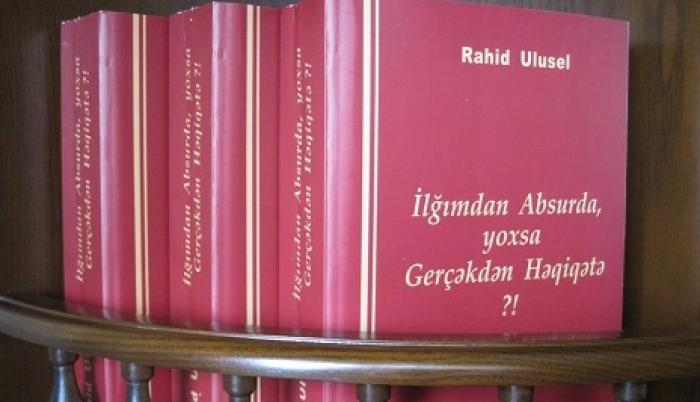
The new large-scale book by Rahid Ulusel, senior researcher at the Nizami Ganjavi Institute of Literature of the National Academy of Sciences of Azerbaijan, employee of the Ataturk Center in Azerbaijan, member of the International Federation of Philosophical Societies, Doctor of Philosophy, published by the “Science and Education” publishing house, entitled “From Imagination to Absurdity, or from Reality to Truth?!” is distinguished by its conceptual ideas and an attempt at a new approach to the problems of culture and humanities. The book includes the author's research on world, pan-Turkic and Azerbaijani culture, articles written during the 2020 Patriotic War, polemical philosophical essays on various topics, writings on the creators of classical aphorisms, and speeches at a number of international congresses on humanities (Seoul, Harvard, Stockholm, Athens, Rome).
The book examines such topical issues as the evolution of Turkic civilization, the emergence of political and cultural unity among modern Turkic states, the reasons for the rise and decline of Islamic civilization, the ideological roots of global threats to the dialogue between civilizations, Azerbaijan's self-affirmation policy in relation to the Caucasian policy of the West and Russia, the historical and political significance of our victory in the Karabakh war, and the self-realization of our national culture with the idea of sovereign statehood.
The author evaluates ancient texts such as "Avesta", "Torah", "Quran", "Bhagavad Gita", "Tao Te Ching", the classical heritage of Plato, Aristotle, Johann Wolfgang Goethe and Friedrich Nietzsche, the aphorisms of Francois de La Rochefoucauld, Blaise Pascal, Ralph Waldo Emerson and Rabindranath Tagore, and the monumental monuments of Auguste Rodin. He conducts a comparative analysis of Eastern and Western classics such as Imadaddin Nasimi and Nicholas of Kuzan, Muhammad Fuzuli and Michelangelo, Hussein Javid and Gibran Khalil Gibran, and also examines the work of contemporary Azerbaijani scientists and philosophers, writers and poets precisely in the context of world intellectual and literary-artistic thought. The philosophy of harmony acts as the main methodological core of these studies.
